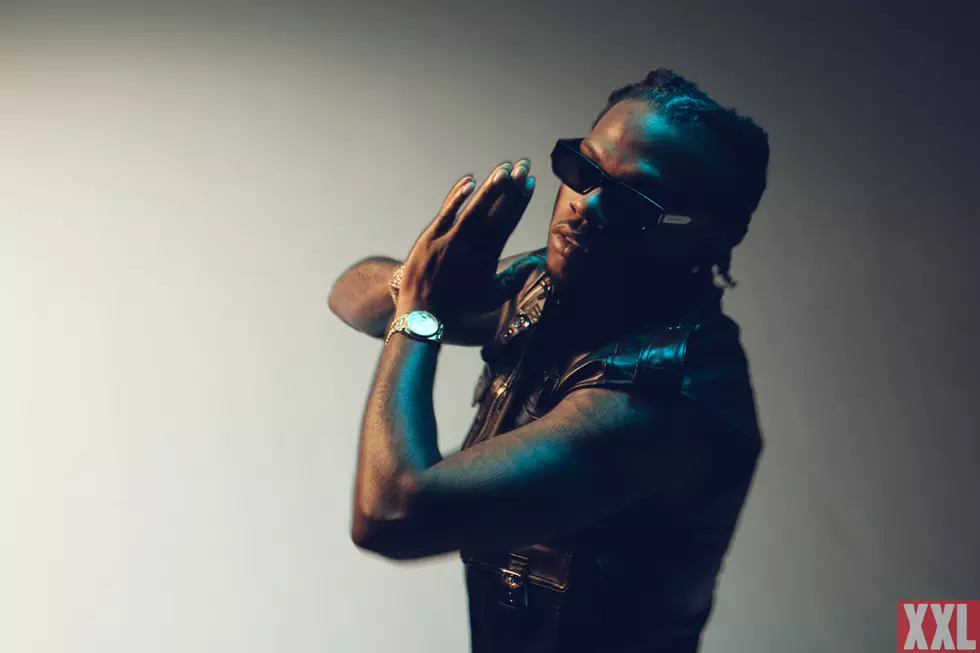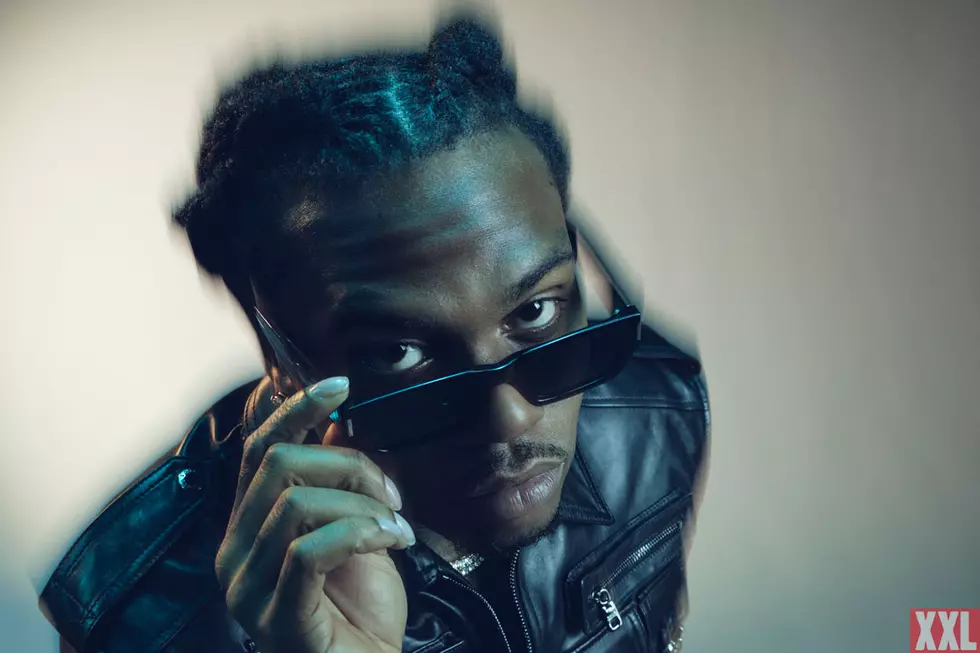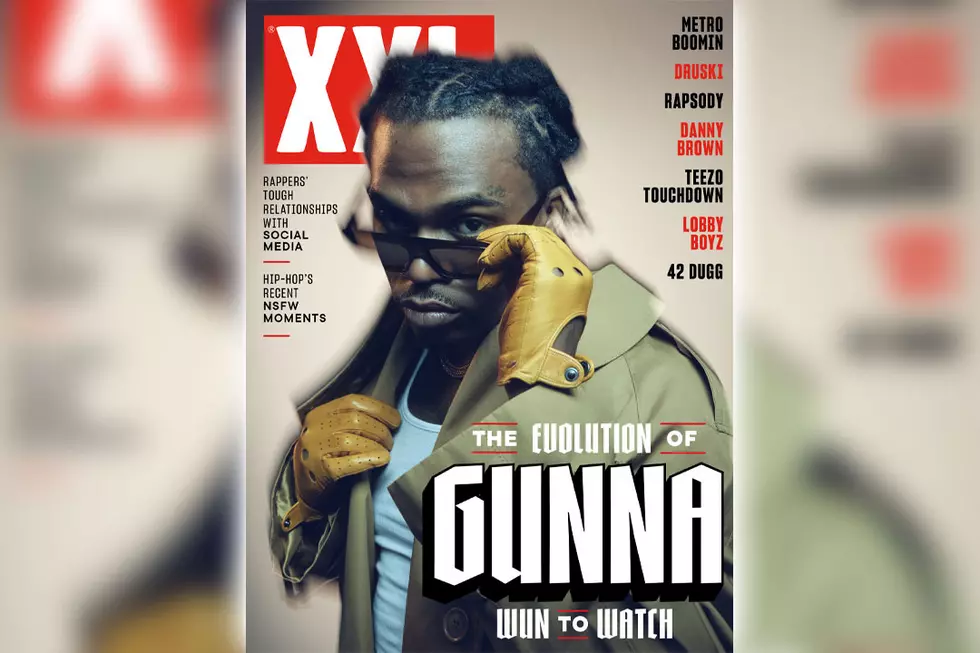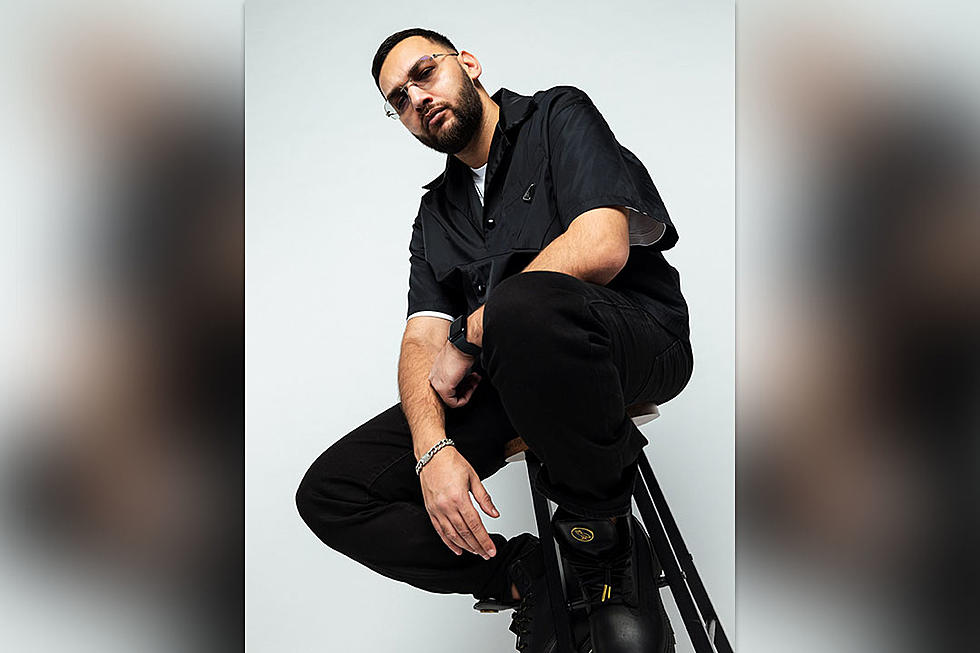
All Or Nothing
 There is a certain quiet euphoria artists exude when they know they’ve delivered that club banger, that classic album, that piece of work that will most certainly take them to the next level. They walk with a little more swagger, their chests swell with every breath, and their smiles are easy, relaxed, maybe even a little relieved. The original brother from the Windy City is looking that way right about now.
There is a certain quiet euphoria artists exude when they know they’ve delivered that club banger, that classic album, that piece of work that will most certainly take them to the next level. They walk with a little more swagger, their chests swell with every breath, and their smiles are easy, relaxed, maybe even a little relieved. The original brother from the Windy City is looking that way right about now.
On a gray, chilly day in New York City, Common is rehearsing for a performance on one of MTV’s Spring Break shows. Though his handlers are keeping him on a breakneck promotion schedule, the lanky, 33-year-old MC is full of energy. Even though his audience consists of only this writer, a sound engineer, his keyboard player, Omar, and his DJ, Dummy, Common runs through his short set so buoyantly, rapping so clearly, smiling so easily, that the dark cavern of a rehearsal space feels as warm and sunny as a beach in Cancun. He is especially animated when he breaks into “The Corner,” an homage to the poor man’s open-air lounge set against an urgent, head-nodding beat.
“The Corner” is the first single off Common’s sixth album, Be, which he proudly describes as “his best work ever.” And he may just be right. With thoughtful, evocative lyrics and 11 great straight-outta-the-basement tracks, the album is generating a major buzz. “Man, it feels better than ever,” says Common, beaming. “I haven’t gotten this type of feedback in my career—where it’s like street cats comin’ to me like, ‘When your album comin’ out?’ and girls telling me they’re enjoying it, and people in Chicago sayin’, ‘We glad you back.’ People keep telling me, ‘Man, we need this in hip-hop.’”
 The recognition is especially rewarding for the man born Lonnie Rashid Lynn on Chicago’s South Side. For 13 years now, he’s been toiling away, playing a very particular role in the rap game: critical darling, artistic purist, backpacker superhero. In 1994, he delivered the classic “I Used to Love H.E.R.,” a bittersweet ode to hip-hop that lamented the prevalence of gangsta ethos at the top of the charts. (The song touched off a short-lived beef with Ice Cube, which was subsequently squashed in a sit-down with Minister Louis Farrakhan.) Over the years, he’s flirted with mainstream success with hits like “The 6th Sense,” “The Light”—which garnered him a 2001 Grammy nomination—and “Come Close.” And his work with the now-scattered Soulquarian collective (D’Angelo, the Roots and former Slum Village producer Jay Dee), a Coke ad with slinky songbird Mya, and a very public romance with neo-soul Earth Mama Erykah Badu have all served to increase his profile.
The recognition is especially rewarding for the man born Lonnie Rashid Lynn on Chicago’s South Side. For 13 years now, he’s been toiling away, playing a very particular role in the rap game: critical darling, artistic purist, backpacker superhero. In 1994, he delivered the classic “I Used to Love H.E.R.,” a bittersweet ode to hip-hop that lamented the prevalence of gangsta ethos at the top of the charts. (The song touched off a short-lived beef with Ice Cube, which was subsequently squashed in a sit-down with Minister Louis Farrakhan.) Over the years, he’s flirted with mainstream success with hits like “The 6th Sense,” “The Light”—which garnered him a 2001 Grammy nomination—and “Come Close.” And his work with the now-scattered Soulquarian collective (D’Angelo, the Roots and former Slum Village producer Jay Dee), a Coke ad with slinky songbird Mya, and a very public romance with neo-soul Earth Mama Erykah Badu have all served to increase his profile.
But like many critically acclaimed “conscious” performers, Common has never had the commercial breakthough to catapult him to the rank of superstar. Even Jay-Z acknowledged the disparity of sales versus substance on 2003’s “Moment of Clarity,” when he confessed: “Truthfully, I wanna rhyme like Common Sense/But I did five mil/I ain’t been rhyming like Common since.”
“I really appreciated it when he said that,” Common says of Jay’s name check. “And I understood what he was saying. I always felt like my mission, and me making music, is bigger than making money; it’s bigger than an award. So I always stood on what I believed in, regardless if this was the thing that was gonna sell at the moment,” he says. “I always made music that was good to me, and I felt like everybody would love it. But I’m not always where everybody is.”
He certainly seemed out of sync in 2002, when his spaced-out hippie opus, Electric Circus, hit the ground with a thud. Making the transition from cult figure to household name seemed less likely than ever after that. But now, with the support of last year’s dark-horse pop phenomenon, Kanye West (who executive-produced the new album and signed Common to his G.O.O.D. Music label), a new focus and a renewed spirit, Common hopes Be will turn his career’s tide once and for all.
Dipped dapper in a starched aqua-blue dress shirt, brown V-neck sweater, cuff links, his signature driver’s cap and a neatly groomed goatee, Common is lunching at Negril, a popular Jamaican eatery in New York’s Chelsea neighborhood. He speaks in a rambling, lazy drawl—a stark contrast to his crisp, focused rap style—and reflects on his Electric Circus misfire. “[That album was] my way of expressing hip-hop at that time,” he explains, “And it just so happened to be—because I wasn’t listening to hip-hop at all then—inspired by Jimi Hendrix and Pink Floyd. In my own dream world, I was thinking that everybody would feel the progression. I thought people was feeling tired of hip-hop like I was. And maybe they were, but that didn’t mean they wanted something that was so far out there.”
Still, Common says, even with the negative reviews, sluggish sales and jokes about him being under the spell of his famously headwrapped girlfriend, he has no regrets. “As an artist, I realize every piece of work I do is not going to be adored by the masses. What’s most important is being true to myself as an artist, and that means being true to the people. [With Electric Circus] I was telling people what I really was thinking. Like, I’m in love, and I’m breaking free. I’m wearing mismatched clothes, and I don’t care what people think we’re supposed to look like, and how we’re supposed to act. This is what I’m expressing; this is my honest feeling at this moment. It wasn’t Erykah. It wasn’t some label, or the spirit of Jimi Hendrix. It was me.”
The album marked a turning point for Common, professionally and personally. Soon after its release, the made-in-Nirvana relationship with Badu collapsed. Although he still calls her “one of my very best friends,” he admits that the break up, combined with the failure of the record, forced him to take a good look at where he was going in his career and life. It was during this period that he re-connected with the man who would change both.
More From XXL









